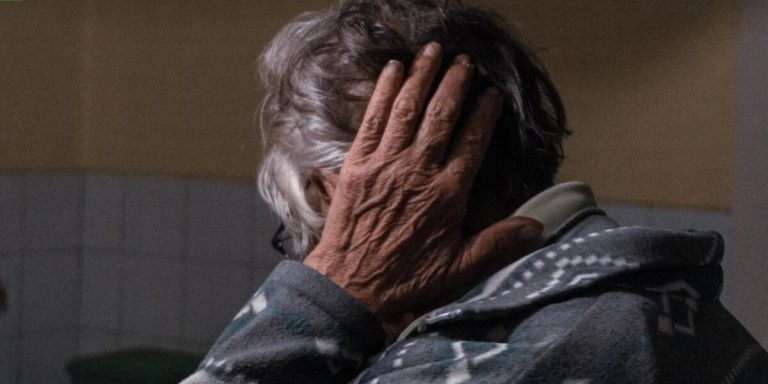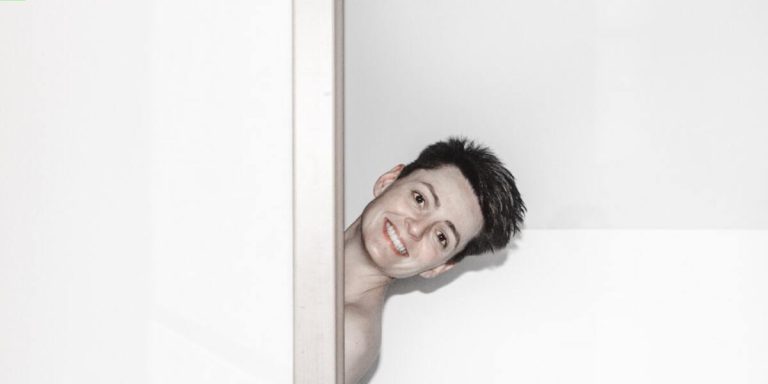Does Estriol Cause Hair Loss? Exploring the Connections and Evidence
Many people grappling with hair loss often find themselves questioning, “Does estriol cause hair loss?” It’s a valid question considering the various studies linking hormonal imbalances to changes in the growth and texture of our mane. Estriol is one such hormone, critical for women’s health but relatively less understood when it comes to its role in maintaining healthy follicles.
In this post, we will delve into whether there are scientific connections between estriol levels and changes in your hair’s thickness or growth rate. We’ll also explore robust evidence from research conducted worldwide that investigates exactly what happens when estrogenic hormones like estriol go awry. Brace yourself for an informative journey through complex scientific jargon simplified just for you!
Did you know?
Little-known Fact: While it’s commonly mentioned that excess of estrogen (estradiol) can lead to hair loss, Estriol – a less potent form of estrogen, is actually studied for its potential use in treating female pattern baldness and alopecia.
Understanding Estriol and Its Impact on Hair Health
Estriol, a less-known form of estrogen commonly associated with pregnancy, is attracting increasing attention in the world of hair health. Although it’s been predominantly researched for its role during gestation periods, recent studies suggest that estriol might influence hair growth patterns as well – making some people wonder if this hormone could be contributing to their unexplained hair loss episodes.
One might ask – how does a pregnancy hormone like Estriol impact your locks? It all comes down to hormonal balance which plays an instrumental part in regulating many body functions including our precious tresses’ health. An excess or imbalance can result in various side effects and symptoms; one being changes in normal hair growth cycles leading to potential thinning or shedding issues.
Before you blame estriol for your thinning hair, consider other factors that contribute to accelerated balding or alopecia, such as genetics, nutritional deficiencies, and internal body functioning.
Although estrogen levels (such as estriol) significantly affect follicular health, 2023 evidence shows no direct single cause between high circulating estriol levels and a worsening receding hairline.
The Hormonal Connection: Estriol’s Role in the Body
Estriol, a hormone primarily known for its crucial role during pregnancy, also plays an unexpected part in hair health. Its relationship with your body and the potential effect on your locks may interest you if you’ve been questioning whether does estriol cause hair loss.
Firstly, let’s understand what Estriol is. It’s one of three primary types of estrogen that our bodies produce — estrone (E1), estradiol (E2), and estriol(E3). While E1 & E2 are more prevalent before menopause, Estriol is produced most abundantly when women are pregnant.
Secondly, it’s essential to explain how this ties into hair growth; indeed hormones have a significant impact on our overall wellbeing – including that lush mane! When the hormonal balance shifts due to stress or aging process like menopause – where levels of all kinds of estrogen decrease but especially amount decreases significantly- can lead to undesirable changes such as thinning hair.
Now comes the critical question: “Does estriol cause hair loss?” The answer isn’t straightforward because while too much estrogen can restrict healthy follicle growth leading potentially balding areas – hint at excess amounts being detrimental for head strands – lower than normal levels might be just as bad since they leave room open wide enough testosterone convert DHT which then causes miniaturization resulting eventually permanent shed over time!
Scientific Perspectives on Estriol and Hair Loss Correlation
Scientific research and studies have observed a correlation between levels of estriol, one of the primary types of estrogen hormones in our bodies, and hair health. For many individuals dealing with unexplained hair loss issues, understanding the role this hormone plays can provide valuable insights into potential treatment options.
Estriol is known for stimulating hair follicles’ growth phase; hence the question arises: “Does estriol cause hair loss?” This query may appear counter-intuitive given what we know about Estriol’s positive impact on promoting new strands’ sprouting. However, there are scientific contexts which give rise to such concerns.
A noteworthy point here refers to gender differences concerning hormonal profiles. Males generally possess lower levels of estrogens compared to females -including less prevalent forms like Estriol- causing their anagen (growth) phase being predominantly shorter than that noticed among women who form natural reserves against balding tendencies till menopause strikes them hard with dwindling nutrient supply necessary for maintaining healthy tresses via depleted ovarian functionalities.
Identifying Key Factors That Contribute to Hair Loss
While the mystery of hair loss has baffled many individuals, it’s important to remember that several factors can play a large role in this phenomenon. As such, understanding key contributors like hormonal imbalances is essential for starting to tackle and manage your hair journey effectively.
Most discussions about hair loss patterns often focus on estriol, an estrogen primarily produced during pregnancy. People ask, “Does estriol cause hair loss?” To answer this accurately, we must explore the intricate relationship between hormones and body functions. Generally, research shows that female sex hormones usually help maintain healthy skin and hair. However, they can cause negative effects when their levels become too high or too low.
Even though there isn’t substantial concrete evidence conclusively linking excess estriol directly with increased rates of shedding strands right now in 2023; reviews from professionals alongside individual testimonials accentuate anecdotal instances where alterations appear after significant changes occur within women’s hormone cycles – potentially suggesting some correlation worth investigating further.
Exploring Nutritional Deficiencies and Their Effects on Follicles
Fulfilling our body’s nutritional demands is a significant aspect of maintaining healthy hair. A well-rounded diet ensures that your follicles get the required nutrients to grow strong and thick strands. However, if those needs aren’t met adequately, it can lead to several health issues – one being hair loss.
Iron plays a vital role in promoting healthy hair growth by aiding in the delivery of oxygen-rich blood cells to the scalp’s follicles, which produce new hairs. Medical professionals recognize iron deficiencies as prevalent, particularly in women undergoing menopause or post-pregnancy when estriol levels vary greatly. A deficiency in iron can cause hair follicle dormancy, leading to increased shedding or potentially resulting in bald patches over time.
Unpacking Stress-Related Alopecia: Triggers and Patterns
Stress-related alopecia, also referred to as telogen effluvium, is one of the leading hair loss causes in today’s fast-paced society. It becomes crucial to delve deeper into this issue and understand its triggers and patterns.
Identifying a common trigger for stress-related hair loss often starts with examining life-changing or particularly stressful events. These can include major surgeries, childbirth, serious illness, or persistent emotional stressors like work pressure or personal conflicts. In these situations, an increase in body-wide inflammation can disrupt your normal hair growth cycle causing it to shift drastically towards shedding phase instead of growing new strands.
Another pattern seen among individuals experiencing stress-induced alopecia involves changes in diet under extreme periods of anxiety and tension. Unhealthy eating habits may lead to deficiencies that weaken our strands over time – iron deficiency being a prime example here.
Furthermore following consistent self-care practices during high-stress periods makes significant strides towards controlling Stress-Related Alopecia outcomes – ample sleep keeps cortisol (the primary ‘stress hormone’) within healthy ranges; regular exercise helps maintain optimal blood circulation thus promoting better nutrient supply for those precious locks!
Investigating Common Misconceptions About Hair Thinning Causes
In recent years, a growing number of people have started questioning whether Estriol – an estrogen steroid hormone – might be causing their hair to thin. This suspicion mainly arises from the understanding that hormonal imbalances are one of the leading causes behind hair loss and premature balding.
To confirm or debunk this popular misconception, it’s essential first to understand what Estriol is and its role in our body systems. Technically speaking, Estriol is one of three primary estrogens produced by women’s bodies. While typically linked with pregnancy due to higher production levels during gestation periods, Men also produce small amounts creating base-level equilibrium necessary for both sexes’ bodily functions.
Unlike other forms like Estradiol expressed excessively in specific pathological conditions such as polycystic ovary syndrome (PCOS) often associated with alopecia- no clear link exists between elevated Estriol levels and accelerated shedding or thinning follicles currently.
Debunking Myths Around Estrogen Therapy and Scalp Wellness
Despite its infamy in the hair loss community, a connection between estrogen therapy and hair thinning remains unclear. A popular myth often circulated is that estriol—an essential component of this form of hormone treatment—leads to significant hair shedding or baldness.
However, numerous scientific studies debunk such theories by providing evidence contrary to this belief. The dermatological research conducted over recent years suggests no direct causative link between uses of estriol and accelerated rates of scalp-hair thinning or losses.
Allow us first to delve into understanding why these misconceptions persist. For decades, hormonal imbalances have been associated with subsequent impact on our appearance – skin acne at various stages in life being an apparent example for many.
The narrative around hormones influencing physical transformations may lead some individuals down the path assuming “all” alterations could be tied back it – including unexplained episodes of sudden extensive hair loss observed.
But underlining one particular type i.e., ‘estrogen’, as sole culprit without empirical data backing can feed further misinformation within public domains leading people astray from seeking effective solutions for their conditions.
Since medical terminologies like ‘Estrogens’ comprise multiple versions (estrone & estradiol included) rather than just ‘estriol’, attributing entire category’s potential effects based upon single constituent part oversimplifies complexities involved underlying variable human responses towards distinct forms prevalent throughout body systems functioning normally.
Separating Fact from Fiction: Does Age Directly Influence Hair Density?
As we age, various changes occur in our body. A commonly believed myth is that age directly impacts hair density leading to thinning hair or complete baldness. Is there any truth behind this claim?
More importantly, does estriol cause hair loss as claimed by many? Let’s delve into these matters.
While aging has its impact on every aspect of human physiology, saying it alone causes the decrease in hair density might be an oversimplification. The health and thickness of your mane depend largely on multiple factors including genetics, lifestyle choices like diet and stress levels along with hormonal imbalances such as fluctuations in hormone named estriol.
Research indicates diverse responses for different individuals when exposed to fluctuating levels of estrogen hormones; some may experience increased shedding while others can have improved follicular growth rendering blanket statements inaccurate..
Conclusion
So, the million dollar question isn’t it, “does estriol cause hair loss?” The answer is not as straightforward as you might envision. Factors like hormone imbalance and genetics also come into play. Hence, while there’s a connection between estrogen hormones (like estriol) and hair health, it doesn’t definitively mean that increased or decreased levels will lead directly to your luscious locks landing on the floor.
If this topic has piqued your interest in understanding more about what causes hair loss and how to prevent it – our website should be your next destination! We have countless articles dealing with distinct triggers of hair fall comprehensively sorted for you. Don’t let unanswered questions bug you anymore; explore through ‘Hair Loss Causes’ on our website now!







